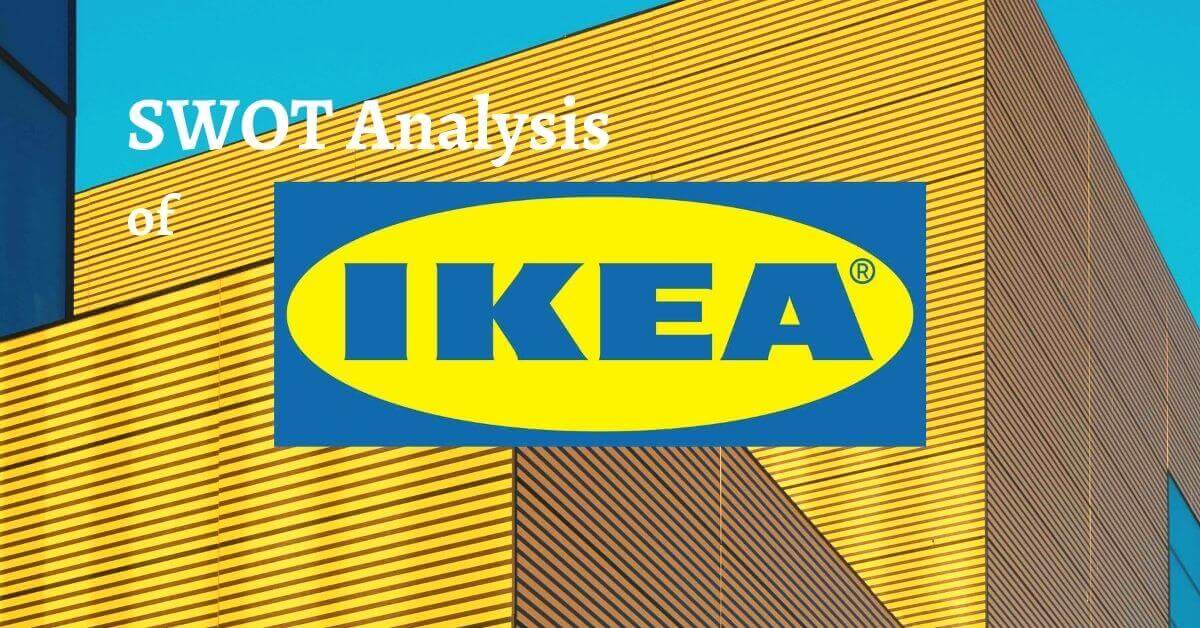Swot analysis of Unilever. Unilever plc is a consumer goods manufacturing British multinational company. Unilever came into existence by merging British and Dutch companies (Lever Brothers and Margarine Unie) on September 02, 1929. The headquarter of the company is in London, England, UK.
Unilever’s main products and services are;
- Skincare,
- Ice cream,
- Personal care,
- Bottled water,
- Cleaning agents,
- Cheese margarine,
- Food & drinks,
- Pregnancy tests,
- Toothpaste,
- Tea,
- Baby food,
- Juice,
- Candy,
- Coffee,
- Pet food,
- Pizza,
- Chewing gum,
- Consumer healthcare,
- Pharmaceuticals.
According to an estimate, the annual revenue of Unilever in 2022 was 63.293 billion dollars. Out of which, the net income of the company was 8.052 billion dollars. The brand has employed approximately 155,000 employees to manage the various operation of the company worldwide.
Unilever’s leading subsidiary brands are;
- Axe/Lynx,
- Surf,
- Dove,
- Sunsilk,
- Omo,
- Rexona/Degree,
- Heartbrand,
- Magnum,
- Hellmann’s,
- Lux,
- Lipton,
- Knorr.
Some of the top competitors of Unilever are;
- Nestle
- Colgate-Palmolive
- L’oreal
- Henkel
- Kimberly Clark
- P&G
Today, we’ll discuss the swot analysis of Unilever. It’s going to focus on the internal and external factors that impact the growth of the consumer goods manufacturing company. Here’s the pestle analysis of Unilever as follows;
Strengths of Unilever
Cost-Efficient
Unilever manufactures a variety of products at economies of scale. Mass production reduces the overall per-unit cost and increases the profitability of the company. The customers would get the products at an economical price range. The cost efficiency is suitable both for the customers and the company.
Focused Marketing
Unilever follows focused marketing and promotional strategies by targeting the customers’ needs and wishes as we know that Unilever is a multinational brand, and the company develops different marketing strategies for various countries depending upon their cultures, religions, and beliefs. It helps the company to remain popular among people by giving them what they want.
Skilled Professional Team
Unilever has employed approximately more than 155,000 employees in over 270 location points across the world. The company’s workforce is highly diversified and skilled professionals. They’re the main strength of the brand.
CSR (Corporate Social Responsible)
Unilever is a socially responsible organization. The company cares about the people and the society in which it’s doing business. The brand has achieved various awards for its economic and social performance over the years.
Market Leader
Unilever plays the market leader’s role because it has launched many trends in the consumer products market over the years. The economies of scale and focused marketing provide the brand a unique competitive edge.
Variable Prices
Unilever has an extensive product portfolio, and the brand keeps on changing its prices depending on the consumers’ purchasing power. The company also ensures that the variable price range won’t affect its profitability.
Distribution Network
Unilever has a robust supply chain and distribution network in various parts of the world. The brand partners with local distributors in multiple regions for the distribution of its products.
Research & Development
Research and development are some of the vital traits of Unilever. The consumer product manufacturing company invests a lot of resources in the development of the new product.
Product Portfolio
Unilever has an extensive and diverse product portfolio. It ranges from pharmaceutical products to ordinary personal care and consumer products. The vast range helps the company to target different segments of the market.
Brand Recognition
Unilever is one of the world’s leading highly recognized brands. The company is operating its business in more than 190 countries across the globe. People can identify the brand name while buying something at the retail shop everywhere.
Weaknesses of Unilever
Substitute Brands
The market is full of similar consumer products of various brands. The customers don’t have to pay extra to switch to other brands. The company doesn’t offer anything unique and different to retain customers.
Relying on Retailers
Unilever sells its consumer products through retailers. The changing behavior of the retailers impacts the overall sale of the company’s products.
Lower Diversified Business
Although Unilever has a vast product portfolio, they all are in the category of consumer goods. In other words, the whole business of the brand relies on one niche. If the sale of consumer products drops, it would decrease the overall revenue.
Opportunities available to Unilever
Social Media Marketing
We live in a world of social media platforms like Facebook, Google, YouTube, LinkedIn, Twitter, Instagram, etc. Many companies are using sponsored posts, and Facebook paid ads to approach their customers. Unilever should also use these social media platforms to market and promote its products and directly connect with ultimate consumers.
Health Conscious Millennial
A significant part of the young market consists of millennials. They’re very cautious about health and diet. Unilever should now change its marketing strategy and target them with healthy products.
Threats Unilever has to face
Competitors
P&G and Nestle are some of the main competitors of Unilever. They’re competing with the brand in terms of pricing and offering new products. The increasing competition puts a lot of pressure on the brand to work hard and stay in the market.
Imitation
The consumer products of Unilever are effortless to replicate. Any new competitor can enter the market and offer the same effect without any difficulty. The brand spends billions of dollars on research and development, and the new competitor can copy it without spending any resources.
Private Labels
Many retailers and shopping malls are launching products under their private labels and brands. Since Unilever depends on these retailers to sell its products, its labels would hide the company’s brand name.
Conclusion: Unilever SWOT Analysis Example Company
After a careful study of the swot analysis of Unilever, we’ve concluded that Unilever is indeed the world’s leading consumer product manufacturing brand. Private labels, growing competition, and easy replication are severe threats to the company. Unilever should utilize its brand name and resource to diversify its business portfolio and differentiate its offers.

Ahsan Ali Shaw is an accomplished Business Writer, Analyst, and Public Speaker. Other than that, he’s a fun loving person.


